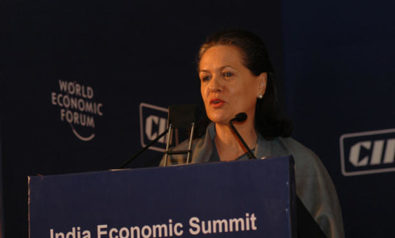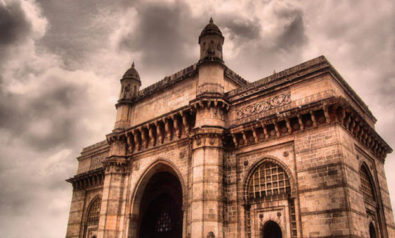It is time we examined the society we have created before we invoke the rather trite argument of dynastic rule to stridently criticise the Gandhis and the Congress. No doubt, dynasty is antithetical to democratic politics. Yet, it is also true that dynastic succession is the norm outside the Indian political realm as well. Its sheer pervasiveness explains why people dismiss outright the hypocritical media outcry against dynastic succession to routinely vote pater familias to power, in state as well at the Centre.
Among the media personalities, arguably the most vocal critics of dynastic succession – and the Gandhis – are two stalwarts who are guilty of what they rail against. One of them is considered the diadem of Indian journalism – he became an editor at a young age, launched a classy newspaper, joined the Congress briefly, returned to journalism and now heads a weekly newspaper in which his son is an associate editor. The other acquired from a generous industrialist, now deceased, a newspaper more than a century old. He is a member of parliament and his son is now the newspaper’s managing editor, presumably being groomed to take over from his father.
It is true the roles of political parties are remarkably different from those of newspapers. It is also possible the children of these two luminaries are prodigiously talented. It is conceivable their fathers, immune to the irresistible tug of paternal love, saw in them qualities they couldn’t in anyone who could step into their posts. Such arguments, though, echo precisely the ones the Congressmen mouth to justify the assigning of party leadership to Rahul Gandhi. He is astonishingly talented, even nonpareil, Congressmen declare earnestly.
In contrast to the Congress, the two illustrious editors run private operations and enjoy an unassailable right to choose who oversees them. Nevertheless, for many in the profession, it could well appear as examples of powerful fathers subverting the idea of meritocracy, given their inevitable role in the appointment of their children.
Might it not have been better for them to have designations which did not vouch for their journalistic excellence and which did not indicate to others that there is “space for eminence” in the two organisations, “but none for pre-eminence”? (The words in quotes belong to one of the two who used it to criticise the appointment of Rahul Gandhi as the vice-president of the Congress.) To what extent is the ethos of the two media organisations any different from the Congress whose members claim they are entitled to run their party as they desire? And to think the media isn’t just a profit-making enterprise but the watchdog of democracy!
Dynastic succession dominates the realm of religion as well. As you enter through the imposing gates of Delhi’s Jama Masjid, from the Chandni Chowk side, you will read written on a board, in a reverential tone, that the descendents of the Bukhari family have been the Imams of the historic mosque for 13 generations, beginning from 1656. Who’s to tell them that the idea of hereditary imam is in gross violation of Islam, which decrees his selection through consultation and consensus?
Similarly, innumerable hallowed temples of India have the tradition of hereditary priests, usually belonging to the Brahmin caste, presiding over them. In 2006, the Tamil Nadu government of M Karunanidhi issued an order abrogating the unwritten principle of hereditary, familial succession to priesthood, which was also opened to non-Brahmin castes. Obviously, the momentous nature of the order, irrespective of its eventual efficacy, was delightfully ironical, for Karunanidhi, too, acquiesced in to the dynastic principle in politics.
Or take the scions of illustrious business families. Irrespective of their abilities, children often inherit companies their fathers or grandfathers established and in which ordinary shareholders are today heavily invested. Think of a businessman, owning a substantial share in an Indian corporation, who voluntarily chose to overlook his or her children at the time of passing the baton. Are we not acquainted with the phenomenon of doctors boasting flourishing clinics paying massive donation fees to ensure their children, unable to qualify for admission to government medical colleges, acquire the mandatory MBBS degree to take over from them?
At least, unlike editor-owners, priests and businessmen, the great political families of India can claim that they have to at least periodically pass the electoral test to acquire power. It is an argument Bollywood too could cite to justify their dynasties. Though children from these families don’t have to struggle for a foothold in the Hindi film industry, the longevity of their career depends on their ability to satisfy the audience. Nevertheless, their presence in Bollywood, as is true of all dynasties in every field, concentrates power in a few, skews and stifles competition. This is true of even classical music, whose practitioners can narrate the debilitating impact ordinary children of extraordinary parents have had on the talented.
India’s propensity to spawn dynasties testifies to the persistence of our feudal mindset, still intact due to our unconscionable socio-economic inequalities and the inherited ethos of our caste system, consequently ensuring the raja-praja type of relationship thrives in different modern avatars. It is through the bridging of these inequalities that we can send dynasties packing, not through hurling blunted barbs at the Gandhis and others even though we are as guilty as they are.
*[This article was originally published by Kafila on March 12, 2013]
The views expressed in this article are the author’s own and do not necessarily reflect Fair Observer’s editorial policy.
Support Fair Observer
We rely on your support for our independence, diversity and quality.
For more than 10 years, Fair Observer has been free, fair and independent. No billionaire owns us, no advertisers control us. We are a reader-supported nonprofit. Unlike many other publications, we keep our content free for readers regardless of where they live or whether they can afford to pay. We have no paywalls and no ads.
In the post-truth era of fake news, echo chambers and filter bubbles, we publish a plurality of perspectives from around the world. Anyone can publish with us, but everyone goes through a rigorous editorial process. So, you get fact-checked, well-reasoned content instead of noise.
We publish 2,500+ voices from 90+ countries. We also conduct education and training programs
on subjects ranging from digital media and journalism to writing and critical thinking. This
doesn’t come cheap. Servers, editors, trainers and web developers cost
money.
Please consider supporting us on a regular basis as a recurring donor or a
sustaining member.
Will you support FO’s journalism?
We rely on your support for our independence, diversity and quality.








Comment